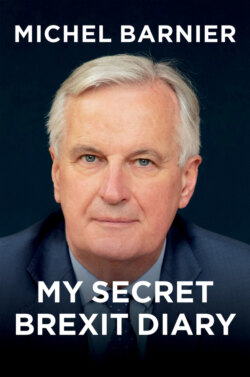Читать книгу My Secret Brexit Diary - Michel Barnier - Страница 15
ОглавлениеOrigins of the Referendum
Wednesday, 23 January 2013. David Cameron, aged 46, had been the UK’s Conservative Prime Minister since 2010. His party had formed the country’s first post-war coalition government together with the Liberal Democrats. Their policy of austerity, implemented with great zeal, had succeeded in easing pressure on public finances. Growth was gradually returning. But the government now found itself faced with the rise of the anti-immigration and Eurosceptic UK Independence Party (UKIP).
It was on this day, in a speech given at the financial news agency Bloomberg, that the Prime Minister chose to talk about his country’s future within the European Union. He began by recalling the very particular position of the British within the Union:
We have the character of an island nation: independent, outspoken, passionate in defending our sovereignty.
We can no more change that British sensibility than we can drain the English Channel.
And because of that sensibility, we come to the European Union with a frame of mind that is more practical than emotional.
For us, the European Union is a means to an end – prosperity, stability, the anchor of freedom and democracy both within Europe and beyond her shores – not an end in itself.*
Cameron went on to enumerate three major challenges facing the EU: the Eurozone crisis, the competitiveness challenge and the gap between the EU and its citizens. ‘If we don’t address these challenges’, he warned, ‘the danger is that Europe will fail and the British people will drift towards the exit.’
The Prime Minister maintained that he did not want this to happen, and set out the way forward for a competitive, flexible and fair Europe in which power would flow back to member states and the Union would be accountable to the people. He then proposed a referendum on his country’s membership of the Union – to be held not immediately, but once an attempt had been made to reset the relationship with a ‘new settlement’ between the EU and the UK.
Much has been written about the timing of and the reasons behind this announcement, which helped reassure voters who may have been tempted by Nigel Farage’s UKIP, thus putting David Cameron on track for a second term in office, which he would go on to win in 2015.
In any case, with David Cameron re-elected as Prime Minister, the European Commission wasted no time in setting up its first task force, under the supervision of British Director-General Jonathan Faull, to deal with ‘strategic issues related to the UK referendum’.
On 19 February 2016, discussions with the UK brought to fruition Cameron’s ‘new settlement’, addressing the concerns he had expressed three years earlier, in particular by acknowledging that the UK would not be bound by the objective of an ‘ever closer union among the peoples of Europe’.
On the subject of the free movement of persons, the UK gained the right to limit access to social benefits for newly arrived workers from other member states for up to four years. It also gained the option to index child benefit for parents working in the UK, but whose children have remained in their country of origin, to the standard of living in their country of origin.
We all know what came next. These measures, aside from being questionable from the point of view of social justice, would not prevent the British from deciding, after all, to leave the European Union.
Notes
1 * https://www.gov.uk/government/speeches/eu-speech-at-bloomberg.
